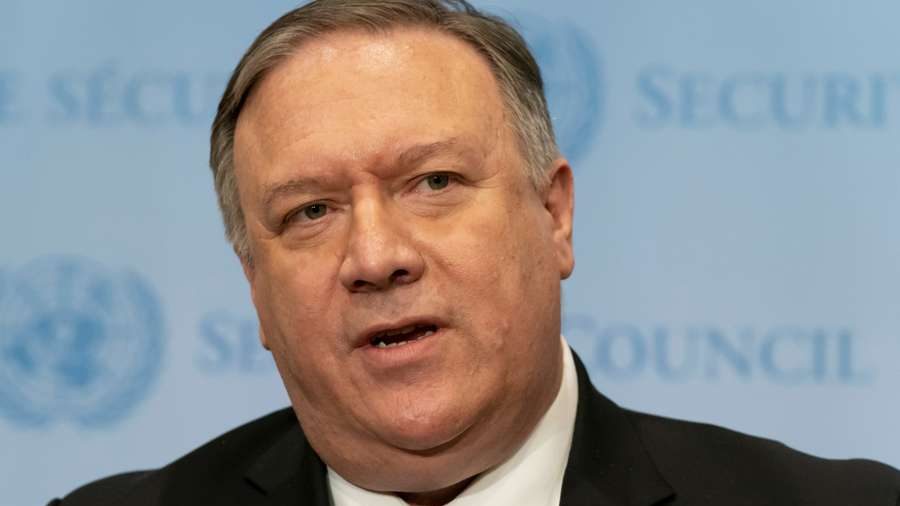The State Department released its annual human rights report on Wednesday, offering the administration’s summary of the situation in nearly 200 countries worldwide for the last year.
“We’re blessed that the unalienable rights are secure here at home. But we all know the rights of life and liberty and the pursuit of happiness don’t just belong to Americans, they belong to everyone everywhere,” Secretary of State Mike Pompeo said on Wednesday at the release of the report.
“Today this report sheds light on dark places where rights like the ones I described are infringed upon,” Pompeo stated.
The State Department released its 2019 human rights report on Wednesday, its 44th annual report which summarizes the human rights situation in 199 countries and territories around the world.
Robert Destro, Assistant Secretary of State for Democracy, Labor, and Human Rights, noted that the report focuses on “internationally recognized human rights” that enjoy a broad consensus, such as those enumerated in the Universal Declaration of Human Rights.
“It’s easy for governments to say that they support human rights; it’s harder actually to do so year after year,” Destro said on Wednesday.
The report includes details of abuses in countries including China, Iran, Venezuela, and Cuba.
China employs a high-tech surveillance system to monitor the movements of Uyghur Muslims and other ethnic minorities in Xinjiang; as many as 1.8 million people have been or are detained in camps in the region, and there are reports of abuses in the camps and forced labor for current and former detainees.
“As I’ve said before, the [Chinese Communist Party’s] record in Xinjiang is the ‘stain of the century.’ It tries to hide what it’s doing by intimidating journalists,” Pompeo said on Wednesday.
The report also details “extrajudicial killings, forced disappearances, torture, and arbitrary detentions” of Nicholas Maduro’s regime in Venezuela, Pompeo said.
In Cuba, citizens are arbitrarily detained and their rights are violated by the Castro regime, he said.
Chinese state media claimed a drop in the number of forced abortions as a result of the country’s coercive two-child family planning policy. However, Uyghur women reported being forcibly sterilized while in detention.
In Hungary, there were reports of political intimidation and state corruption, and human trafficking remained a problem.
Civilians were killed at the hands of Russian-led forces in occupied parts of Ukraine; there were reports of politically-motivated arrests and torture of Ukrainian citizens in those areas.
In Israel, the West Bank, and Gaza, the report detailed targeted killings of Israeli civilians and soldiers, arbitrary detention, and restrictions on non-Israelis living in Jerusalem as well as the freedom of movement.
Iranian-backed militia groups continued detaining minorities in Nineveh, Iraq, including Christians who were also victims of kidnapping by ISIS.
“Together, we support human rights defenders in a wide variety of environments who risk their lives to instill in their own societies the respect for human rights and fundamental freedoms that we as Americans hold dear and take for granted,” Destro stated.
In 2018, the agency removed the “reproductive rights” section from its 2017 human rights report, and replaced it with statistics on “coercion in population control.”
Secretary Pompeo also announced that the Commission on Unalienable Rights—an advisory commission headed by the former U.S. Ambassador to the Holy See, Mary Ann Glendon—will send its work to him around July 4. The commission was charged with reviewing human rights as part of U.S. foreign policy.

